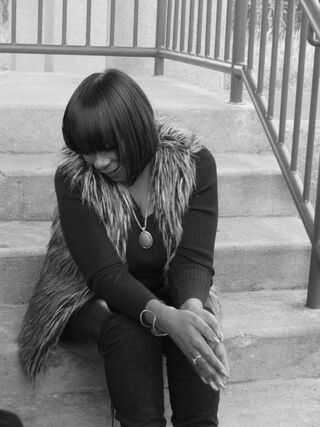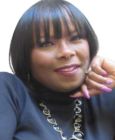Coaching
How Diverse Is the Coaching Industry?
There is a need for coaching to represent diversity as much as it supports it.
Posted October 20, 2020

Globally, leaders in organizations are questioning or working on improving their diversity and inclusion policies. Some are even challenging hiring practices to ensure roles are filled with qualified but diverse candidates. There are also more requests to deploy and invest in evidenced-based training in the workplace.
We are seeing these activities because we live in a time of racial "wokeness." More and more videos, articles, studies, and media are shedding light on the disparities and lack of diversity many industries have. In addition, many nations are experiencing civil unrest around continued systemic racism, xenophobia, and denial of civil rights towards marginalized groups worldwide. North America is showing a great deal of struggle in this area, especially through the weaponizing and politicizing of race, gender, and sexual orientation by some of the country's leaders, institutions, and citizens.
In June 2020, the International Coaching Federation (ICF) made a public statement condemning racism and systemic inequality/inequity. Some ICF local chapters and other coaching bodies have spearheaded professional development opportunities and programs that focus on ways to increase incisiveness, diversity, and cultural awareness. As such, it is safe to say the coaching industry takes any type of discrimination, bigotry, or inequality seriously. Also, the industry as a whole is making concentrated efforts to ensure diversity and inclusion in the coaching industry.
Although efforts to be inclusive are a priority in the industry, people of color and men are still underrepresented in the industry, with women making up approximately 70 percent of coaches globally and approximately 74 percent in North America (ICF, 2020). Currently, there is little data on the number of coaches who identify as a person of color or as a member of the LGBTQ community. It's also unclear how many coaches may consider themselves as allies of these groups.
However, by typical engagement in coaching organizations or hiring a coach, you will find diversity is low. For example, I found an article in Fast Company, where the author stated when she joined a group coaching program, she was the only person of an Indonesian background. This is a common theme for many coachees, including myself. I have primarily had coaches who were white and female. And, in my career, I have only been coached by two women of color and one male. When I work with coaches of color, they have shared with me how it's refreshing to see someone who "looks like them."
What we know through behavioral science research is that representation can be important to overall personal and professional success (Whitesell et al., 2009). But I say that with a degree of caution. Southard, Morgan, and Zeigler-Hill (2014) found that culturally representative material may produce a social identity threat in vulnerable populations. The authors proposed this may be due to a historical misrepresentation and negative stereotyping about one's social identity or culture. Nonetheless, there is sufficient evidence that when you see someone who looks like you in powerful positions, influential professions, or in positive imagery via media, the representation can have a beneficial effect on your self-value and worth.
So, what does this mean for coaching? While the coaching industry supports diversity, inclusion, and equality, there is still work to do. There is a need for better cultural awareness and to be more inclusive in coaching (Uppal, 2017).
Some of the ways we can do this as an industry include coaching organizations promoting and targeting coaches of different social identities in their marketing strategy and targeting efforts around becoming a coach, getting credentialed or certified to engage emerging markets within various communities and/or coaching domains. Moreover, we, as coaches, can intentionally seek to learn more about and work specifically with socially and culturally diverse coachees. A question I ask myself is, how diverse and inclusive is my brand and coaching approach? Or, am I creating inclusiveness as a coach?
Also, organizations can hire and engage with diverse coaches as part of business best practices. Furthermore, there is still a lack of cultural sensitivity training and cultural awareness development for coaches (Uppal, 2017). In fact, Reid Ready Life Coaching, LLC, is one of the few coach training organizations that offer cultural sensitivity and awareness-specific training for coaching professionals. And the industry as a whole can do better at collecting data and creating metrics about social identify among coaches to monitor and track emerging markets, population changes or needs, and how coaches and coachees want to see themselves represented.
Nevertheless, while the coaching industry is diligently aligning its mission about diversity with the outcome of real representation, as coaches, we can still make significant social changes at the micro/individual coaching level. Here are a few tips from my Cultural Sensitivity Coach Training program that can help you develop an inclusive mindset and greater sensitivity towards different coachees and your coaching colleagues:

- Check your own biases and beliefs about different groups.
- Check your colleagues' biases and beliefs about different groups.
- Consider being an ally and using your influence and expertise to make changes in the industry.
- Connect with and/or network with diverse coaching professionals.
- Invite people of diverse social identities to become coaches.
- Invite coaches of diverse social identities to become involved with coaching activities (e.g., join your coaching organization or local coaching chapter).
- Participate in cultural sensitivity or cultural awareness training.
- Participate in conferences and professional development specifically for coaches.
- Be open to change and learning new info.
Finally, do not generalize people or outcomes based on social identity. There is diversity among groups, just as there is diversity between groups. So, having a mindset of the individual uniqueness of people as people can also open your mind to ways of being inclusive as a coach and improving diversity in the industry.
References
International Coaching Federation. (2020). 2020 Global Coaching Study: Executive Summary. https://coachfederation.org/app/uploads/2020/09/FINAL_ICF_GCS2020_Execu…
Southard, A., Morgan, H. & Zeigler-Hill, V. (2014). The influence of culturally authentic children’s books on the self-esteem and racial preferences of elementary school students. Revue internationale de psychologie sociale, tome 27(3), 227-238. https://doi.org/
Uppal, R. K. (2017). Diversity in coaching: Beyond best practices. Coaching Psychology International, 10(1), 26-32. https://webzoom.freewebs.com/isfcp/CPI%2010.1.pdf
Whitesell, N. R., Mitchell, C. M., & Spicer, P. (2009). A longitudinal study of self-esteem, cultural identity, and academic success among American Indian adolescents. Cultural diversity & ethnic minority psychology, 15(1), 38–50. https://doi.org/10.1037/a0013456




